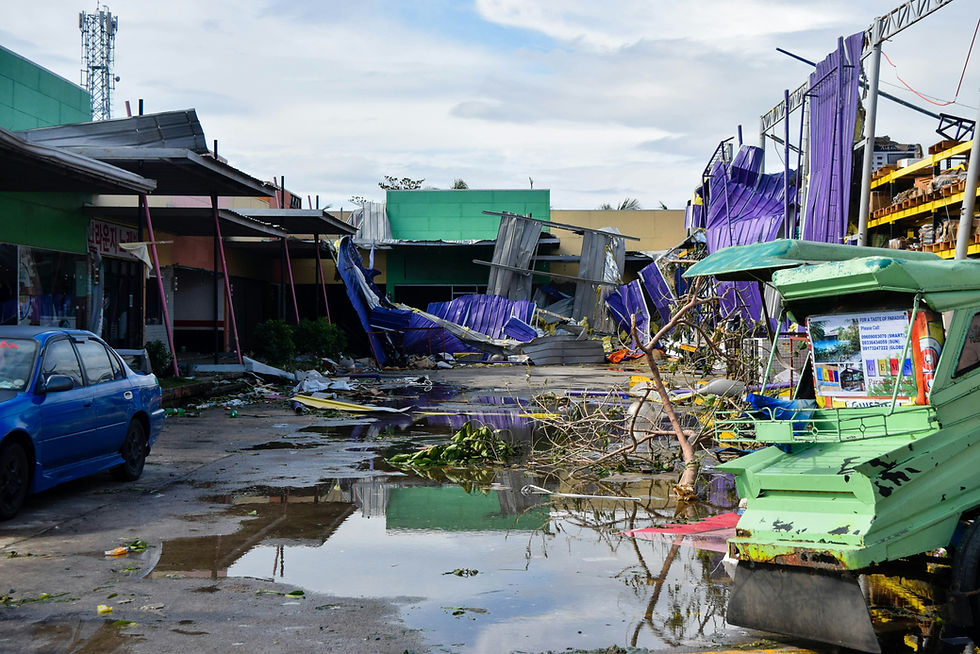Climate Change on Trial – Review
- Maria Diaz Macias
- Mar 20, 2019
- 4 min read
Updated: Feb 18, 2023
This past March 19th, 2019, Room for Discussion hosted an interview with Dr. Professor Joyeeta Gupta (co-chair of UN Environment’s Global Environmental Outlook-6) and Freek Bersch (Spokesperson for Economy at Milieudefensie). The goal of the interview was to examine the challenges posed by climate change to our legal systems and policy rooms, and how the issue is being addressed in our courtrooms. The present article aims to give readers a quick overview of how the interview developed and what were the main points discussed.
During the whole interview, a point that was frequently emphasized, particularly by Professor Gupta, was the important role that international law plays in addressing climate change. It is through means of international regulations that countries can come together and establish common procedures and goals. A very good example of this international cooperation and commitment is the Paris Agreement, in which 195 countries adopted the first-ever universal, legally binding global climate deal. You might ask yourself how effective these agreements are, since President Trump recently backed up from this agreement. “Technically I have not found the official document in which he has pulled the U.S. out. We just heard his announcement”, Professor Gupta cleared. But do these regulations really work?
It is undoubtedly important to bring countries together. Each country has its own different dynamics and priorities, but setting common goals addressing climate change is key. Politicians may generally let short-term pressure influence their decisions in running a country. It is for this reason that judiciary bodies are crucial in climate challenges, because they are not so pressured by short-term goals and can adopt a long-term perspective. It is all a question of balance of power, but Professor Gupta believes that right now is judiciary the one we must focus on. Regarding the individual level, both interviewees agreed that young people strikes that have been recently happening around the globe can make a difference. Strikes are powerful movements. However, Mr. Bersch believed that as good as these protests are, we are underreacting: “we haven’t done much more much sooner”.
In the second half of the interview, our interviewers from Room for Discussion wanted to get down to the question who is to blame?. Several statements were presented, to which both interviewees had to agree or disagree. The following are presented below.
Corporations are the biggest players when it comes to climate change
Both interviewees agreed. Mr. Bersch explained: these days, many corporations are bigger than some governments, and they are becoming increasingly powerful. Holding governments accountable can be done with tools such as democracy or judiciary, but when it comes to corporations this is much harder. Some multinationals can become very powerful and affect negotiations. Professor Gupta illustrated this with the example of Shell: the company, that has known for long about climate change and has the necessary money and expertise, could have become a leader in addressing climate change. They did not, pleading that Dutch people prefer fossil fuels. To this, Professor Gupta argued that people do not really care where their electricity and fuel comes from.
Governments are doing enough to adequately address climate change.
Mr. Bersch disagreed, arguing that as long as we are not in a path to achieve the Paris climate goals, we are not doing enough. Professor Gupta added that governments can do much more if they choose it, and without their GDP going down.
The individual holds the ultimate responsibility when it comes to climate change.
“We need to do a bit, but we can’t change the system alone”. Apart from social movements and pressuring the court, Professor Gupta believes that individuals don’t have more importance on the issue than the government or the private sector have. She claimed, the leader in this should be the government, but it is the individuals who must form the social movements. “We [individuals] should push them [government] to show them leadership”. To this statement, Mr. Bersch considers climate change to be a collective problem, hence the need for collective solutions. Our interventions on the individual level may help, but climate change does not entirely depend on each of us individually. Citing a social psychology principle, he argued: “when people’s beliefs and people’s actions do not match, people tend to change not their actions, but their beliefs. It could be possible that this frame on climate change and ecological problems has helped people be sceptic about the need to address these problems”.
Overall, both interviewees have agreed that litigation (i.e. the process of taking legal action) in facing climate change is of primary importance. When asked if in the future there will be room for unsustainable corporations, Professor Gupta nodded, explaining that there will always be unsustainable companies lacking the knowledge or expertise to change their procedures. However, the focus should now be on those companies that are currently unsustainable, and try to make them sustainable.
P.S. If this interview (or article!) left you curious about the issue, make sure to read our pre-interview article to get a more detailed background of the situation here.




Comments